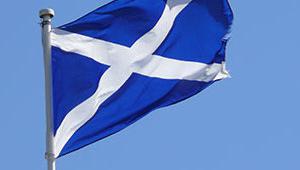By Richard Johnstone | 4 February 2015
Almost all of the accelerated fiscal consolidation planned by the coalition government to the end of the decade is set to come from spending cuts, an analysis by the Institute for Fiscal Studies has found.
Publishing its annual Green Budget, the economic think-tank said that plans set out in Chancellor George Osborne's Autumn Statement would lead to real-terms cuts to departmental spending of 14.1% from 2015/16 to 2019/20. This is a larger cut than the 9.5% reduction in the current parliament.
This plan is based on spending reductions and efficiencies making up 98% of reductions to 2020, the report highlighted, with only 2% expected to come from higher tax revenues. By contrast, the £110bn tightening since 2010 has been made on a split of 82% from cuts and 18% through higher taxes.
IFS director Paul Johnson said Osborne had not been as austere a chancellor as either his own rhetoric or that of his critics might suggest.
Real-terms cuts in spending on public services over this parliament have been smaller than planned, he noted. This was due to inflation having been lower than was first forecast in 2010 and spending settlements were not adjusted to account for this.
Original 2010 plans implied real cuts of 10.6% to departmental spending by the end of this financial year, but latest figures indicate cuts of only 9.5% have been made, once those announced for 2015/16 are included.
‘[The chancellor] deliberately allowed the forecast deficit to rise as growth undershot in the early years of the parliament,' Johnson said of Osborne's plans. 'He has not cut spending in real terms as much as planned, as inflation has undershot. And he has cut departmental investment spending by only half as much as he originally planned.
'One result is that he or his successor will still have a lot of fiscal work to do over the course of the next parliament. The public finances have a long way to go before they finally recover from the effects of the financial crisis.'
In its forecast of cuts after the general election, the think-tank highlighted that continuing the protection to spending on health, schools and overseas aid in the next Parliament would double the average cut for all other departments.
In particular, the IFS said that increased spending on the NHS would tighten the squeeze elsewhere. December's Autumn Statement plans implied average annual departmental spending cuts of 3.7% between 2015/16 and 2019/20.
However, if NHS spending is to rise by £8bn over the course of the next parliament, which has been called for NHS England, average annual reductions for other departments would reach 6.1%.
The IFS also said that proposals for a further £12bn reduction in welfare spending as part of deficit reduction would not be easy.
The Conservatives’ most significant announced cut – a two-year freeze on all non-disability benefits for those of working age – would reduce spending by less than £2.5bn, the report said, not the £3.2bn claimed.





















